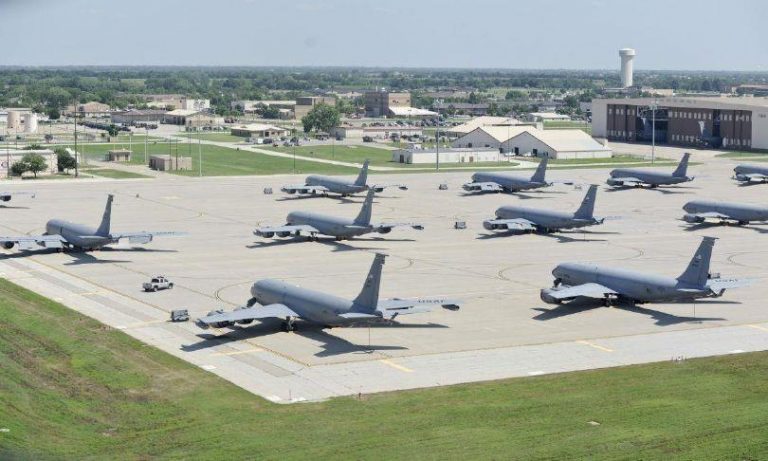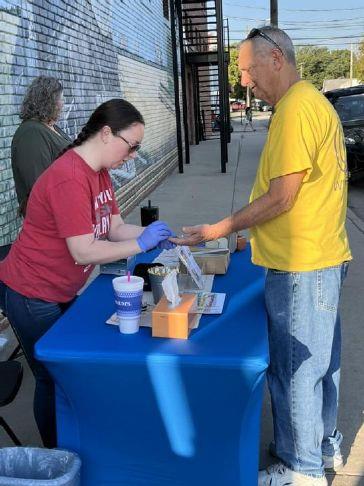As the federal government shutdown enters its second week, agencies across the country — including one with an office in Sumner County — are feeling the strain. At the time of publication, the shutdown remains in effect, and tens of thousands of additional federal employees are expected to be furloughed as funding lapses continue.
While some agencies are using limited carryover funds to remain partially operational, many are beginning to scale back services.
In response to an inquiry for another story, a U.S. Fish & Wildlife Service staff member provided an automatic reply that underscored the situation:
“Due to a lack of appropriations funding, I am currently out of the office on furlough and will return once appropriations funding is approved by Congress and the Government returns to normal operation. During this time, I will not have access to government email and will return your message when normal operations resume.”
According to the Congressional Budget Office, approximately 750,000 federal workers have been furloughed since the shutdown began on October 1, 2025. Hundreds of thousands more classified as “essential” are continuing to work — but without pay.
Locally, residents are already seeing the ripple effects across multiple departments.
U.S. Department of Agriculture (USDA)
Roughly half of the USDA’s 86,000 employees — about 42,000 nationwide — have been placed on temporary furlough, including staff at the Farm Service Agency (FSA) office in Wellington, located in the Raymond Frye Complex. The office’s phone message invites callers to email, but notes that employees will not have access to their work email until they return.
The closure has halted the processing of payments for farm loans, conservation contracts, and disaster relief. For one local farmer, that means funds from a sizable grain sale remains inaccessible because the jointly issued check cannot be co-signed by the FSA until the office reopens.
Critical USDA services such as food safety inspections continue, but local employees performing those duties are working without pay. Some have even received sample letters to explain to creditors why they may fall behind on bills.
One bright spot: the Women, Infants, and Children (WIC) program remains funded in Kansas through the end of October. The Sumner County Health Department confirmed that the Kansas Department of Health and Environment received contingency food funding from the USDA to sustain WIC benefits through the end of this month.
U.S. Department of Commerce
The Department of Commerce has retained about 19% of its 43,000 employees, most of whom are working without pay. The National Oceanic and Atmospheric Administration (NOAA), which operates under this department, continues to provide essential weather, water, and climate services — including National Weather Service forecasting — but non-essential updates and website maintenance have been paused.
Department of Defense
All active-duty military personnel are required to report for duty but are not receiving paychecks. Hundreds of Kansas National Guard staffers are on unpaid leave while some members of the Kansas National Guard are continuing to work but will not be paid until federal funding is restored.
Essential civilian workers supporting military operations — such as medical and dental staff, maintenance crews, and munitions producers — continue working without pay, while approximately 335,000 non-critical civilian employees have been furloughed.
At McConnell Air Force Base in Wichita, about 600 civilian employees have been furloughed, affecting the 22nd Air Refueling Wing, the Air Force Reserve Command’s 931st Air Refueling Wing, and the Kansas Air National Guard’s 184th Wing.
The furloughs have disrupted non-essential base functions, including elective surgeries, childcare programs, and morale, welfare, and recreation (MWR) activities.
Education and Health Departments
Wellington USD 353 continues to receive Title I grant funding, and those payments have not been affected.
At the Department of Health and Human Services, Medicare benefits will remain uninterrupted through December. However, replacement cards cannot currently be issued.
Some employees at the Centers for Disease Control and Prevention are still monitoring potential disease outbreaks, but public communications and state guidance have been suspended.
Department of the Interior
National parks, trails, and open memorials generally remain open, though visitors will find no trash pickup or educational programs operating. Hunters seeking access to public lands may encounter delays, as the U.S. Fish and Wildlife Service cannot process most new permits, and some federal wildlife refuges are closed.
Other Federal Departments
Labor: Unemployment insurance benefits continue to be processed.
State: Visa and passport processing remains unaffected.
Social Security: Payments continue as normal, but benefit verifications are temporarily unavailable.
Treasury (IRS): Operations are continuing under Inflation Reduction Act funding, though only through early October. Electronic tax filings are being processed automatically, but paper filings could face delays.
Veterans Affairs: VA medical centers and outpatient clinics remain open, and veterans are continuing to receive benefits. However, programs that help veterans transition to civilian life — such as career and financial counseling — have been suspended. Regional offices and the GI Bill hotline are closed, and VA doctors are required to work without pay.
Judicial Branch
The federal courts and Supreme Court are funded to operate with pay through at least October 17. Most proceedings and filing deadlines remain on schedule.
General Consequences
As the shutdown continues, many federal agency websites and social media pages are no longer being updated, and public communication channels — including “Ask VA” and other outreach platforms — have been paused.
Phone lines are going unanswered, and many offices have posted automated messages noting that staff will not respond until appropriations are enacted.
For now, federal workers – including neighbors, friends and family members – are left waiting, uncertain when normal operations will resume.




